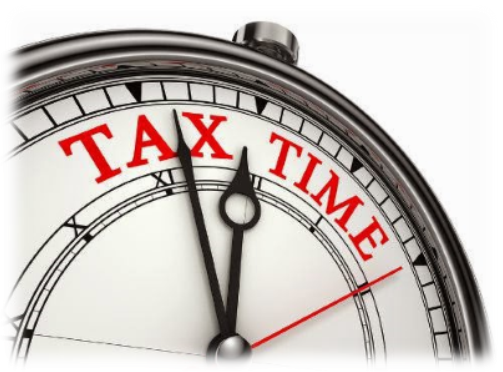 Many low- and moderate-income working families in Wisconsin may qualify for thousands of dollars in tax credits at tax time.Together, the federal Earned Income Tax Credit (EITC) and the state Earned Income Credit can provide anywhere from a few dollars to more than $8000, depending on household income, marital status, and number of children in the household.
Many low- and moderate-income working families in Wisconsin may qualify for thousands of dollars in tax credits at tax time.Together, the federal Earned Income Tax Credit (EITC) and the state Earned Income Credit can provide anywhere from a few dollars to more than $8000, depending on household income, marital status, and number of children in the household.
Specifically designed for households with earnings, the credits are intended to supplement the wages and thus increase the purchasing capacity of employed households. Workers can receive the credits even if their incomes are too low to pay any income taxes.
“These tax credits are a critical source of income for hundreds of thousands of working families around the state, who often struggle to meet their basic needs,” says Judith Bartfeld, UW-Extension food security research and policy specialist and professor at UW-Madison. “The credits are also good for communities, since they infuse extra money into the local economy.”
Households need at least some earned income from work to be eligible for the EITC. For unmarried tax filers with children in their household, the income limits range from $39,296 with one child to $47,955 with three or more children. All income limits are approximately $5000 higher for married households. A smaller credit for some tax filers without children is available with incomes up to $14,880 if unmarried or $20,430 if married.
The amounts of the credits also vary depending on who’s in the household, with the highest credits for households with 3 or more children. The federal EITC ranges from a few dollars to over $6000; the Wisconsin credit–which is available to any households with children that qualify for the federal credit–can be as high as $2131. Credit amounts also vary with income, and gradually decline in value as income approaches the cut-off.
In order to receive these credits, eligible people must file taxes and specifically claim the credits on their returns. Both federal and Wisconsin taxes must be filed in order to receive both of the credits. This year, refunds for returns that include the EITC won’t be issued before February 15, but households don’t have to wait until then to file their returns.
Every year, thousands of eligible families miss out simply by not filing a return. People who may not have been eligible in the past are more likely to miss out, as are non-English speakers, people with changes in household circumstances, and those whose income is too low to otherwise have to file tax returns. People new to Wisconsin may not be familiar with the state EITC, as it is not available in all states.
Filing a Wisconsin tax return also allows many people to claim the state Homestead Credit. This credit is intended to offset the impact of rent and property taxes on low- and moderate-income households. It is available to both renters and homeowners with incomes up to $24,680, and can be worth as much as $1,168.
Website provides information
To help eligible households learn about these tax credits, UW-Extension has developed a website providing detailed information—including information on eligibility and benefits, links to tax forms, links to find free tax assistance, and more. The website, which can be found at https://fyi.extension.wisc.edu/eitc/, also provides resources for groups interested in helping to get the word out about the tax credits.
For individualized free help in filing taxes and claiming tax credits, taxpayers can visit a Volunteer Income Tax Assistance (VITA) or Tax Credit for the Elderly (TCE) site that provides service to low and middle-income tax filers.
To find a VITA site near you, visit https://fyi.extension.wisc.edu/eitc/vita-sites/. Information on the La Crosse area TCE site can be found below.
La Crosse Area Tax-Aide Resources
AARP Tax-Aide Program The AARP Tax-Aide program will again prepare tax returns free of charge beginning Wednesday, February 1st. The program will help all low and middle income taxpayers, with special attention granted to those ages 60 and over.
The program includes Federal and Wisconsin State tax returns and Homestead Credit returns. Volunteers will staff the tax preparation site at the La Crosse Main Library on a regular weekly basis. This is the only location at which the Federal and Wisconsin State Tax Returns will be prepared and they will be electronically filed.
Appointments are Required. Tax counseling will be provided at the La Crosse Main Library on an APPOINTMENT ONLY basis.
Appointments can be made by calling the Library at 608-789-7443, Monday through Friday from 9 a.m. to 4 p.m. RSVP and library volunteers will be staffing the phone lines.
INFORMATION YOU MUST BRING TO YOUR APPOINTMENT:
To help tax preparers at either site determine your eligibility for the EITC, bring along the following information:
- Valid Photo identification
- Valid Social Security cards for the taxpayer, spouse and dependents
- Birth dates for primary, secondary and dependents listed on the return
- Current year’s tax package, if received
- Wage and earning statements—Form W-2, W-2G, 1099-R, 1099-Misc from all employers, SSA 1099
- Interest and dividend statements from banks (Form 1099)
- Copy of 2015 tax returns— federal, state, and homestead, if available
- Bank routing numbers and account numbers for direct deposit
- Proof of any other relevant information about income and expenses
- All Forms 1095, Health Insurance Statements
- Health Insurance Exemption Certificate, if received
- Total paid for day care
- Day care provider’s identifying number



